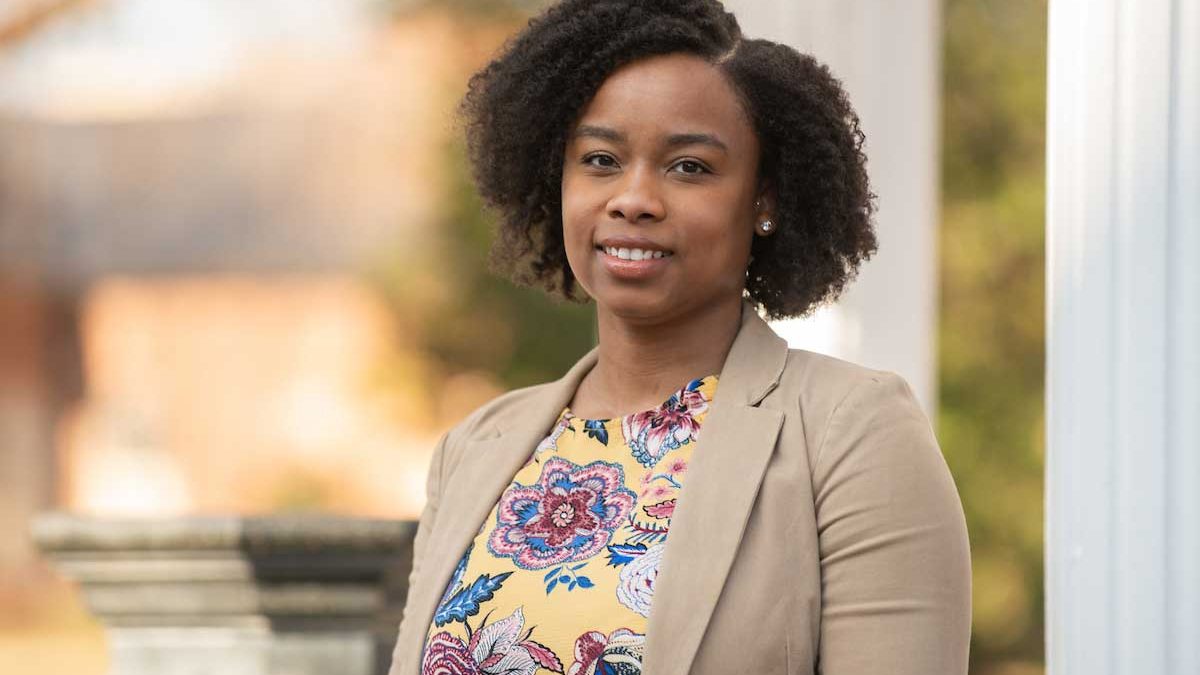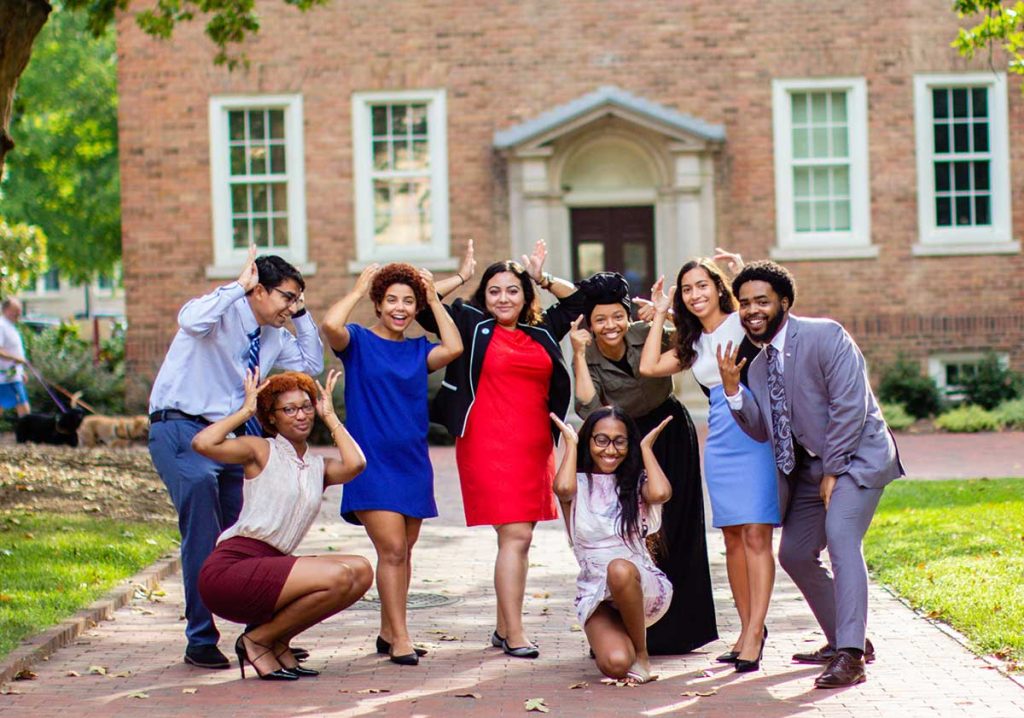Closing the Gaps
The Carolina College Advising Corps provides students with access to financial aid and scholarship information to promote student financial wellness.

The Carolina College Advising Corps provides students with access to financial aid and scholarship information to promote student financial wellness.
Heather Jones ’17, financial aid and scholarships coordinator, Carolina College Advising Corps (photo by Jen Hughey)
The Carolina College Advising Corps is promoting student financial wellness and youth financial capability as young people prepare for postsecondary opportunities and guard against overbearing student debt.
One year ago, Heather Jones ’17 was approaching her final months as a college adviser. In the two years after she graduated from UNC-Chapel Hill, she served in the Carolina College Advising Corps (CCAC), helping students at Fike High School in Wilson, North Carolina, apply to and enroll in college.
“As an adviser, I noticed that the cost of tuition was one of the biggest barriers for first-generation students, particularly students from low-income families and underrepresented backgrounds,” Jones said.
Today, Jones is supporting 59 advisers serving at 76 high schools across the state as the financial aid and scholarships coordinator, a new position in the CCAC made possible by the Annie E. Casey FoundationOpens in new window.
The Annie E. Casey Foundation invested in this position as part of a broader effort to reduce household debt — including student loan debt — and help families, especially those of color, build wealth. Student loan debt is the largest source of non-mortgage debt in the United States, exceeding a total amount of $1.5 trillion in 2019. Among the many economic consequences for borrowers, their families and communities, and the nation’s economy, student debt disproportionately affects women and people of color, resulting in an increase in the gender and racial wealth gaps.
According to a recent briefOpens in new window by the Asset Funders Network, women hold nearly two-thirds of the nation’s student loan debt, and the median Black borrower still owes 95% of their debt 20 years after enrollment, compared to 6% for White students.
“The effects of student loan debt can be far-reaching and hinder young adults, particularly young people of color, from attaining financial stability in the long run,” said Velvet Bryant, program associate in the Annie E. Casey Foundation’s Center for Economic Opportunity. “It’s important to have intentional advising sessions with students and their families as they navigate educational pathways and access financial resources.”
CCAC advisers help level the field by providing students with access to financial aid and scholarship information easily and willingly. Of the 14,000 high school seniors served by CCAC in 2019–20, approximately 61% were students of color.
With Jones in this new, centralized position, CCAC advisers now have someone who can answer their questions in real-time, keep them up to date on the ever-changing FAFSA policies, share best practices and offer additional support with challenging situations.
Yolanda Keith ’08, associate director of undergraduate admissions at UNC-Chapel Hill and director of CCAC, has already noticed a difference since Jones started in the position in September 2019.
“We’ve realized the information gap is bigger than we thought,” said Keith. “Through the number of conversations Heather has with advisers, the weekly FAFSA tips videos she has created and the relationships she’s strengthening with our partners across the state, we are really seeing how different things would be right now if we’d had someone in this position.”
 Charlotte area Carolina College Advising Corps advisers
Charlotte area Carolina College Advising Corps advisers
Jones was drawn to the position, in part, because of her own experience as a college student.
“It took me a little longer to graduate,” she shared. “I had some challenges that I dealt with as I transitioned from high school to college. Through CCAC, I discovered my passion for advocacy and how I could help other students with that transition.”
In addition to improving youth financial capability and increasing the number of low-income, first-generation and underrepresented students applying to and enrolling in college, CCAC advisers lead by example.
“A large number of our advisers are people of color, first-generation college students and/or scholarship recipients themselves. They represent the students they serve and are destined to become leaders in service after working with the Corps,” added Keith. “The advisers inspire students while gaining service experience and learning how they can impact changes in policies that contribute to inequities in society.”
Beyond increasing the financial capability of future college students and their families, CCAC helps chip away at student debt in another way. Upon completion of their service, advisers receive an education award that can be used toward their own student loans or graduate-level education.
“These individuals are selfless, driven and hardworking,” said Keith. “They’re working long hours each week, cold-calling and emailing students and parents, hosting workshops and individual meetings, and developing new and innovative ways to connect with students, all while working on tight application deadlines. I can’t say enough about how much I respect, honor and appreciate them for giving their time to work with our program. We want to make sure they keep their futures in the forefront as they gain skills and perspectives to support positive change.”
Support the Carolina College Advising Corps by making an online gift todayOpens in new window. For more information about the CCAC, visit carolinacollegeadvisingcorps.unc.eduOpens in new window.
